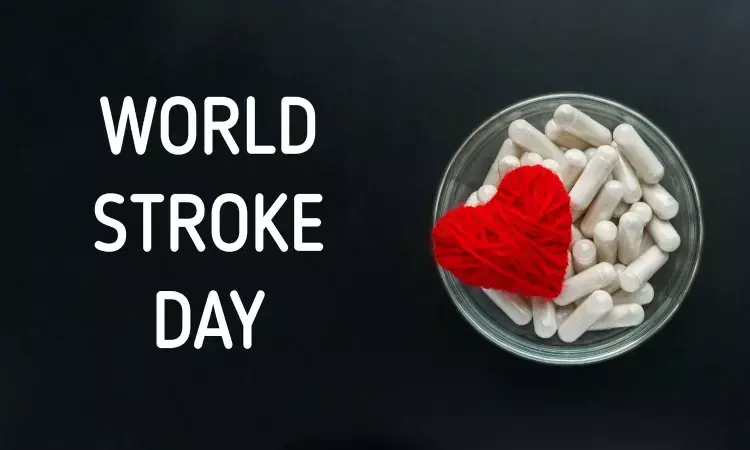- Home
- Medical news & Guidelines
- Anesthesiology
- Cardiology and CTVS
- Critical Care
- Dentistry
- Dermatology
- Diabetes and Endocrinology
- ENT
- Gastroenterology
- Medicine
- Nephrology
- Neurology
- Obstretics-Gynaecology
- Oncology
- Ophthalmology
- Orthopaedics
- Pediatrics-Neonatology
- Psychiatry
- Pulmonology
- Radiology
- Surgery
- Urology
- Laboratory Medicine
- Diet
- Nursing
- Paramedical
- Physiotherapy
- Health news
- Fact Check
- Bone Health Fact Check
- Brain Health Fact Check
- Cancer Related Fact Check
- Child Care Fact Check
- Dental and oral health fact check
- Diabetes and metabolic health fact check
- Diet and Nutrition Fact Check
- Eye and ENT Care Fact Check
- Fitness fact check
- Gut health fact check
- Heart health fact check
- Kidney health fact check
- Medical education fact check
- Men's health fact check
- Respiratory fact check
- Skin and hair care fact check
- Vaccine and Immunization fact check
- Women's health fact check
- AYUSH
- State News
- Andaman and Nicobar Islands
- Andhra Pradesh
- Arunachal Pradesh
- Assam
- Bihar
- Chandigarh
- Chattisgarh
- Dadra and Nagar Haveli
- Daman and Diu
- Delhi
- Goa
- Gujarat
- Haryana
- Himachal Pradesh
- Jammu & Kashmir
- Jharkhand
- Karnataka
- Kerala
- Ladakh
- Lakshadweep
- Madhya Pradesh
- Maharashtra
- Manipur
- Meghalaya
- Mizoram
- Nagaland
- Odisha
- Puducherry
- Punjab
- Rajasthan
- Sikkim
- Tamil Nadu
- Telangana
- Tripura
- Uttar Pradesh
- Uttrakhand
- West Bengal
- Medical Education
- Industry
AYUSH Ministry promotes holistic, preventive and rehabilitative stroke care

New Delhi: The Ministry of Ayush highlights the role of Ayush systems in providing holistic, preventive, and rehabilitative care for stroke, one of the leading causes of death and disability in India.
Emphasising an integrative approach, Ayush systems focus on promoting systemic balance, enhancing resilience, and supporting long-term recovery to complement conventional medical care in stroke management.
Shri Prataprao Jadhav, Union Minister of State (IC), Ministry of Ayush and Union Minister of State, Ministry of Health & Family Welfare, informed, “The growing challenge of stroke underscores the need for comprehensive, integrative health strategies.
Also Read:AYUSH Ministry, ICMR to host national seminar on liver wellness through Ayurveda
Ayush systems, with their emphasis on preventive care and long-term rehabilitation, can significantly complement conventional stroke management.
The Ministry of Ayush remains committed to promoting evidence-based traditional healthcare to enhance the quality of life and reduce the national burden of stroke. Our focus is on building stronger research collaborations and public awareness, which can play a transformative role in reducing stroke incidence and supporting sustainable recovery pathways.”
Vaidya Rajesh Kotecha, Secretary, Ministry of Ayush, noted, “Ayush systems collectively offer a holistic framework for understanding and managing complex neurological disorders such as stroke.
The Ministry of Ayush continues to advance collaborative and translational research through its wide network of institutions and collaborations to scientifically validate and expand the therapeutic potential of Ayush-based interventions, strengthening integrative healthcare for stroke prevention, rehabilitation, and overall neurological well-being.”
The Ayush systems emphasise harmony between the body, mind, and environment. Their preventive philosophy and holistic therapeutic regimens not only aim at disease management but also at enhancing resilience, reducing recurrence, and improving overall quality of life. These systems collectively promote integrative approaches that can reduce the burden of non-communicable diseases such as stroke.
Stroke, often referred to as a “brain attack,” is caused by a sudden interruption in the brain’s blood supply. It occurs when the flow of oxygen-rich blood to part of the brain is blocked (ischemic stroke) or when a blood vessel ruptures, causing internal bleeding (hemorrhagic stroke). A transient ischemic attack (TIA), also known as a “mini-stroke,” results from a temporary blockage lasting a few minutes.
In Ayurveda, stroke is understood as a neurological disorder resulting from an imbalance of Vata dosha, leading to weakness or paralysis, typically on one side of the body. Ayurvedic management focuses on restoring balance through preventive, detoxifying, and restorative therapies aimed at improving circulation, nerve function, and overall vitality.
Multiple studies have indicated the effectiveness of Homoeopathy as an adjuvant therapy in stroke management, particularly in improving neurological outcomes, motor recovery, and post-stroke quality of life.
The Ministry of Ayush highlights that various Ayush systems provide distinctive and complementary approaches for the prevention, management, and post-stroke rehabilitation, aiming at both physical and neurological recovery.
Also Read:AYUSH Ministry pushes herbal medicine regulation at WHO-IRCH summit
Kajal Rajput joined Medical Dialogues as an Correspondent for the Latest Health News Section in 2019. She holds a Bachelor's degree in Arts from University of Delhi. She manly covers all the updates in health news, hospitals, doctors news, government policies and Health Ministry. She can be contacted at editorial@medicaldialogues.in Contact no. 011-43720751


